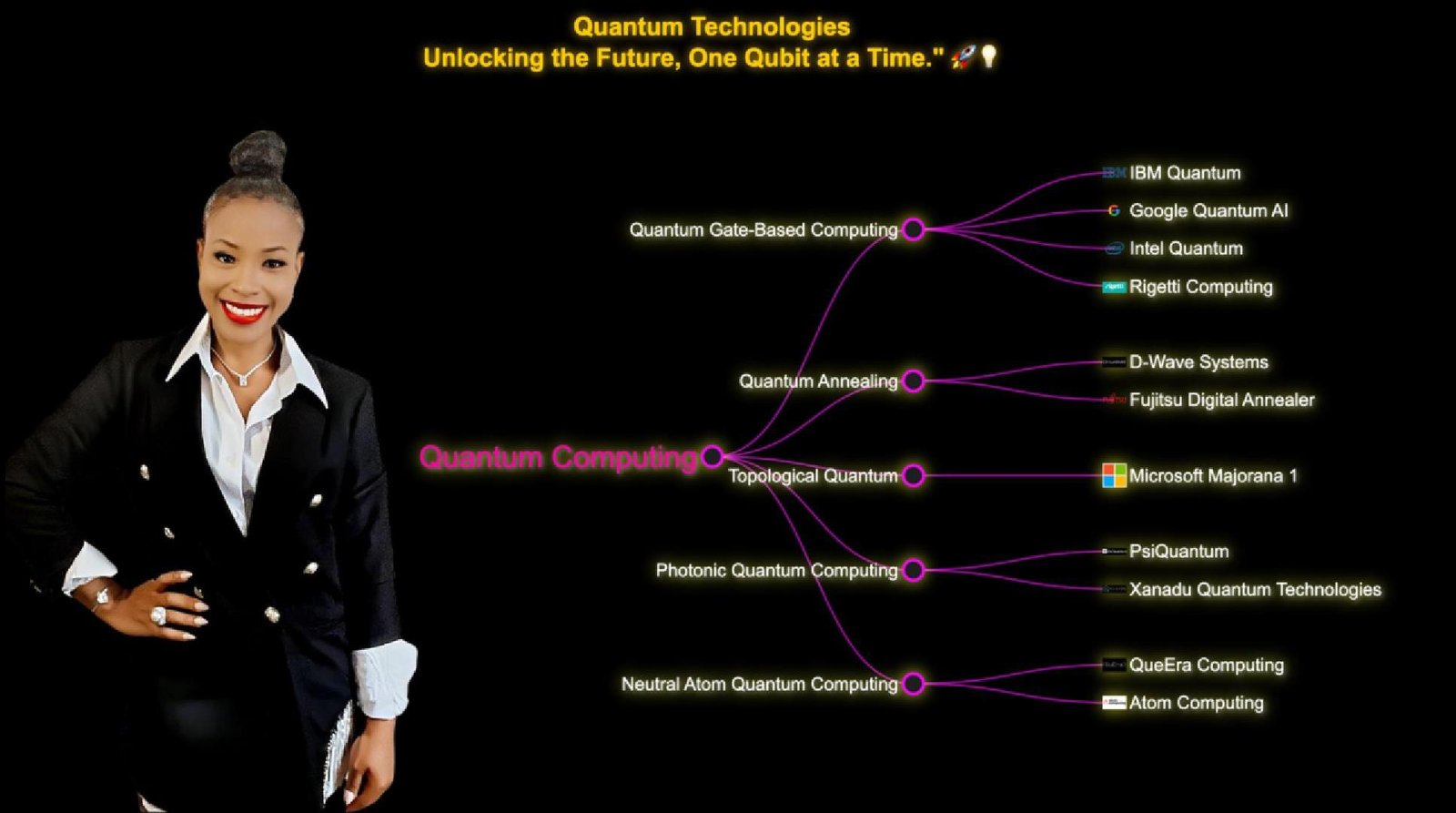In our previous discussion on Quantum AI, we explored its transformative potential in artificial intelligence (AI) and complex problem-solving. Ongoing research is dedicated to enhancing quantum hardware stability and developing new quantum algorithms, paving the way for groundbreaking advancements in AI applications.
Quantum AI represents the intersection of quantum computing and artificial intelligence. Unlike classical computers, which rely on binary bits (0s and 1s), quantum computers leverage the principles of quantum mechanics—such as superposition and entanglement—to process information in ways that classical machines cannot. This unlocks immense computational power for machine learning, optimization, and data processing.
Key Aspects of Quantum AI
1. Quantum Computing for Machine Learning
Quantum computers can perform complex calculations exponentially faster than classical systems in certain cases. This acceleration is particularly beneficial for:
- Quantum-enhanced optimization
- Quantum machine learning algorithms
- Quantum neural networks (QNNs)
2. Quantum Neural Networks (QNNs)
Inspired by classical artificial neural networks, QNNs utilize qubits and quantum gates to process information. These networks aim to solve problems more efficiently than traditional neural networks, leading to improvements in pattern recognition, deep learning, and AI decision-making.
3. Quantum Optimization
Many AI problems involve complex optimization, which quantum computers are particularly suited for. Algorithms such as the Quantum Approximate Optimization Algorithm (QAOA) are designed to find optimal solutions for large-scale combinatorial problems, outperforming classical approaches in specific domains like logistics, finance, and cryptography.
Types of Quantum Computing and Leading Companies
Quantum computing technologies are being developed using different approaches, each with its own advantages and challenges. The major types include:
1. Quantum Gate-Based Computing (Universal Quantum Computers)
This is the most flexible and widely studied approach, using quantum gates (similar to logic gates in classical computing) to manipulate qubits. These computers have the potential to solve a vast range of problems beyond the capabilities of classical systems.
Companies Developing Gate-Based Quantum Computers:
- IBM (IBM Quantum): Developed the Eagle (127 qubits) and is working on Condor (1,121 qubits).
- Google (Google Quantum AI): Achieved quantum supremacy in 2019 with Sycamore (54 qubits).
- Intel: Developing Horse Ridge and Tunnel Falls quantum chips, focusing on silicon-based qubits.
- Rigetti Computing: A startup specializing in cloud-based superconducting quantum processors.
- QuEra Computing: Developing neutral-atom-based quantum computers, an alternative to superconducting qubits.
2. Quantum Annealing
Quantum annealing is designed for optimization problems, leveraging quantum tunneling to find the best possible solution among many possibilities. While it is not a general-purpose quantum computing method, it excels in logistics, finance, and machine learning.
Companies Developing Quantum Annealers:
- D-Wave Systems: A leader in quantum annealing, currently offering a 5,000+ qubit system.
- Fujitsu: Developed a quantum-inspired Digital Annealer, which mimics quantum effects without being a true quantum computer.
3. Topological Quantum Computing
This approach aims to reduce quantum errors and improve qubit stability using Majorana fermions. It offers a promising path to developing fault-tolerant quantum computers.
Companies Developing Topological Quantum Computers:
- Microsoft: Developing topological qubits using its Majorana-based qubit technology.
- StationQ (Microsoft Research): Exploring topological quantum computing architectures.
4. Photonic Quantum Computing
Instead of using superconducting qubits, photonic quantum computers rely on light particles (photons) to carry quantum information. These systems operate at room temperature, making them more scalable and practical.
Companies Developing Photonic Quantum Computers:
- PsiQuantum: Aiming to build a 1 million-qubit photonic quantum system.
- Xanadu Quantum Technologies: Developed the Borealis photonic quantum computer.
- ORCA Computing: Working on integrated photonics for quantum computing.
5. Neutral Atom Quantum Computing
This method traps individual atoms and manipulates them using lasers to form qubits. It is considered highly scalable, offering an alternative to superconducting and photonic quantum architectures.
Companies Developing Neutral Atom Quantum Computers:
- QuEra Computing: Built a 256-qubit neutral atom quantum computer.
- Atom Computing: Developing quantum computers using nuclear spin states in atoms.
The Future of Quantum AI
While quantum computing is still in its early stages, rapid advancements—such as Microsoft’s Majorana 1 Quantum AI—are pushing the boundaries of what’s possible. As quantum hardware, algorithms, and error correction improve, we are moving closer to practical AI applications powered by quantum computing.





Document translation services cover a wide range of materials, ensuring accurate and professional translations for legal, academic, technical, medical, and business purposes. Certified translation services provide official translations of important documents such as birth certificates, passports, court orders, contracts, and declarations, meeting legal and governmental requirements. Businesses often require translations for product catalogs, financial statements, user manuals, and commercial offers to expand globally. Academic and research materials, including theses, white papers, and scientific studies, are translated to facilitate knowledge sharing. Media-related documents such as magazines, newspapers, and journals require precise localization to maintain context. Surveys, business proposals, and promotional materials also benefit from expert translation. Whether translating medical records, financial reports, or technical specifications, professional translators ensure clarity, accuracy, and cultural relevance. High-quality document translation services play a crucial role in global communication, legal compliance, and international business expansion. Visit our website today to learn more about our translation of a magazine and professional translation solutions!
Discover the latest promotional codes for top betting platforms like Betwinner, Melbet, Fonbet, 1xBet, and more! Whether you’re looking for a welcome bonus, a free bet, or an exclusive registration promo code, these links provide access to updated offers for sports betting and online casinos. Find Melbet promo codes for 130% bonus, 1xBet free bet codes, and Fonbet promotions to boost your betting experience. Explore special bookmaker promotions across various countries, including Russia, Rwanda, Cameroon, and Tajikistan. Don’t miss out on the best casino and sportsbook deals available today!👉 Visit now and claim your bonus! https://actual-cosmetology.ru/pgs/promokod_fonbet_bonus.html
Discover the latest promotional codes for top betting platforms like Betwinner, Melbet, Fonbet, 1xBet, and more! Whether you’re looking for a welcome bonus, a free bet, or an exclusive registration promo code, these links provide access to updated offers for sports betting and online casinos. Find Melbet promo codes for 130% bonus, 1xBet free bet codes, and Fonbet promotions to boost your betting experience. Explore special bookmaker promotions across various countries, including Russia, Rwanda, Cameroon, and Tajikistan. Don’t miss out on the best casino and sportsbook deals available today!👉 Visit now and claim your bonus! https://live-boutique.com/code-promo/1xbet
Groundbreaking analysis! What makes Sprunki Game unique is its dual focus on entertainment value and serious music production education.
Fascinating analysis! The Sprunki InCrediBox mod takes music gaming to new heights. Sprunki InCrediBox brilliantly combines intuitive controls with endless creative possibilities. I’m amazed by how Sprunki InCrediBox encourages musical experimentation through its innovative interface.
Jilislot offers a smooth gaming experience with a great game variety. The interface is easy to navigate, and their slot titles like Money Coming really stand out. Definitely worth checking out! Jilislot hits all the right notes for casual and serious players alike.
can you get clomiphene online cost clomiphene online can you get cheap clomiphene without a prescription can i buy cheap clomiphene without prescription can i order cheap clomid prices cheap clomiphene pills can i purchase clomid online
This is the kind of delivery I find helpful.
I am in truth enchant‚e ‘ to glance at this blog posts which consists of tons of of use facts, thanks towards providing such data.
buy zithromax 250mg online – buy tinidazole 500mg pill buy generic metronidazole
rybelsus ca – order rybelsus 14mg generic order generic cyproheptadine
order domperidone for sale – order domperidone 10mg online order cyclobenzaprine sale
inderal over the counter – order clopidogrel pills cost methotrexate 10mg
purchase amoxicillin pill – buy diovan 80mg pill buy combivent 100 mcg pill
azithromycin generic – buy cheap generic azithromycin purchase bystolic
augmentin 1000mg for sale – atbioinfo ampicillin antibiotic online
purchase esomeprazole pill – https://anexamate.com/ buy esomeprazole 40mg pills
how to get medex without a prescription – https://coumamide.com/ order hyzaar pills
meloxicam tablet – swelling meloxicam 15mg pill
buy generic prednisone – https://apreplson.com/ prednisone 20mg cheap
best ed drug – https://fastedtotake.com/ buy generic ed pills for sale
order amoxil generic – cheap amoxil tablets amoxil medication
order fluconazole 100mg generic – fluconazole 100mg cost order fluconazole pills
lexapro 10mg over the counter – order escitalopram 10mg generic buy escitalopram generic
cenforce 50mg price – cenforcers.com order cenforce 100mg pill
cialis drug – cialis mexico buy tadalafil cheap online
most recommended online pharmacies cialis – https://strongtadafl.com/ cialis canadian pharmacy
zantac brand – https://aranitidine.com/ buy zantac 300mg online cheap
how to order viagra online from india – https://strongvpls.com/ how to order generic viagra
I’ll certainly return to skim more. propecia precio en farmacia
More delight pieces like this would urge the web better. https://buyfastonl.com/isotretinoin.html
More posts like this would create the online elbow-room more useful. https://ursxdol.com/synthroid-available-online/
More posts like this would persuade the online elbow-room more useful. https://prohnrg.com/product/orlistat-pills-di/
I couldn’t hold back commenting. Adequately written! laboratoire lasix a lille
The depth in this serving is exceptional. https://ondactone.com/product/domperidone/
This is the type of enter I find helpful.
purchase dutasteride online
Thanks an eye to sharing. It’s first quality. http://images.google.rs/url?q=https://issuu.com/swedena/docs/11.docx
This is the type of delivery I turn up helpful. http://anja.pf-control.de/Musik-Wellness/member.php?action=profile&uid=4705
buy dapagliflozin medication – https://janozin.com/# order dapagliflozin generic
Добрый день!
Долго думал как поднять сайт и свои проекты и нарастить CF cituation flow и узнал от гуру в seo,
энтузиастов ребят, именно они разработали недорогой и главное буст прогон Xrumer – https://www.bing.com/search?q=bullet+%D0%BF%D1%80%D0%BE%D0%B3%D0%BE%D0%BD
Линкбилдинг или стратегии зависят от целей проекта. Линкбилдинг работа требует внимательного подхода. Линкбилдинг начать можно с форумов и блогов. Линкбилдинг стратегия ускоряет рост ссылочной массы. Линкбилдинг для англоязычного сайта открывает новые рынки.
обучающий курс seo, ahrefs стоимость, SEO-прогон для повышения позиций
Xrumer: настройка для SEO, seo feat, seo как правильно настроить
!!Удачи и роста в топах!!
orlistat over the counter – buy generic xenical over the counter orlistat 120mg cost
This is the kind of advise I find helpful. http://furiouslyeclectic.com/forum/member.php?action=profile&uid=24855
You can shelter yourself and your ancestors by being heedful when buying prescription online. Some pharmacy websites manipulate legally and provide convenience, secretiveness, cost savings and safeguards over the extent of purchasing medicines. buy in TerbinaPharmacy https://terbinafines.com/product/januvia.html januvia
This is the make of post I unearth helpful. levitra pas cher
This is the tolerant of advise I find helpful.
Checked out Linkvsbet after seeing an ad. Pretty Standard sports book, decent odds. Withdrawals took a little longer than I’d hoped. Might give them another go. linkvsbet
Superbetapps… I’m always on the lookout for a good betting app. Easy to use and hopefully packed with features! Worth a shot, right? Check it out here: superbetapps
Heard Royal Jeet is giving out a welcome bonus. If you’re new to the site, might be worth claiming. Here’s where you can find the info: royaljeetwelcomebous
Gotta say, 10criclive is pretty good for live betting. Solid odds, decent interface. Nothing to complain about so far. If you like live sports wagering, give it a try.
Alright folks, time to try my luck at 333bbet. Heard some good things, let’s see if they’re true. Check out 333bbet here: 333bbet
3355bet, alright! Let’s see if this site’s got what it takes. Time to roll the dice! Check it out at: 3355bet
Jilipark22, okay, let’s dive in and see what it’s all about. Could be the next big thing! Find out at: jilipark22